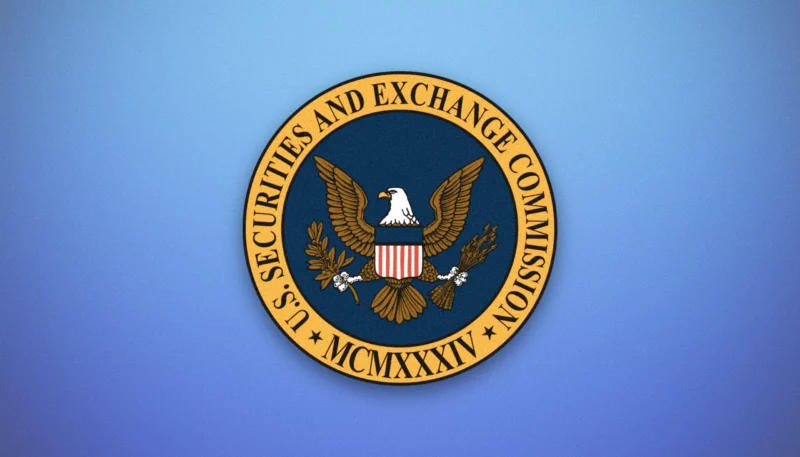It’s been almost a year since Congress passed the Jumpstart Our Business Startups Act (or JOBS Act). At the time, the passage of this bill was greeted with significant enthusiasm from the start-up community. Among other things, it provided for a crowdfunding exemption from securities registration requirements and a repeal of the prohibition on general solicitation of investors in connection with certain private offerings. A year later, how do things stand? In this first of a series of posts, I’ll explore how implementation of the JOBS Act has progressed and what we might expect in the future.
First, let’s start with an overview of the JOBS Act. The JOBS Act is divided into six main sections called “titles.”
- Title I of the JOBS Act — also known as the “IPO On-Ramp” — creates a new category of company called an “emerging growth company,” which is defined roughly as a company with less than $1 billion in revenue. An emerging growth company would enjoy more lax regulation by the SEC than other public companies for up to five years. For example, the act permits emerging growth companies to defer compliance with Section 404(b) of the Sarbanes-Oxley Act until the company is no longer considered an emerging growth company. Section 404(b) requires the company’s auditor to report on and attest to management’s assessment of the company’s internal controls, a requirement that necessitates high compliance costs. The IPO On-Ramp was effective upon passage of the JOBS Act. More details will be discussed in a future post.
- Title II makes two distinct changes in the law related to private placements. First, it contains a provision instructing the SEC to revise its rules to remove the general solicitation prohibition applicable to offerings made under Rule 506 of Regulation D, as long as all purchasers are accredited investors. Second, it exempts from broker-dealer registration certain online platforms that pair investors with companies seeking capital and potential co-investors and those that provide ancillary services (such as due diligence or provision of standard documents). The provision related to online platforms became effective upon passage of the JOBS Act. The provision repealing the ban on general solicitation in Rule 506 offerings has not gone into effect because of delays in the SEC’s rule-making process, generating considerable friction between some members of Congress and the SEC.
- Title III is the so-called “crowdfunding” law. Probably the most well-known of all the provisions in the JOBS Act, it creates a new exemption from securities laws for certain offerings conducted online. It has not yet gone into effect because of delays in the SEC’s rule-making process. At the time it passed, I was very critical of it, mainly because I thought that the heavy compliance burdens it imposed would make it unworkable for small companies looking for investors. In a future post, I’ll reexamine and possibly reassess my views in light of the events of the last year and discuss recent developments associated with this portion of the act.
- Title IV essentially instructs the SEC to revise a little-known securities registration exemption known as Regulation A, increasing the amount that can be raised under that exemption from $5 million to $50 million. Like the Regulation D reform and crowdfunding provisions, title IV has not yet gone into effect because of delays in the SEC’s rule-making process. More details will be discussed in a future post.
- Titles V and VI make it easier for companies to remain private (i.e., avoid having to become a public reporting company). Prior to the passage of the JOBS Act, if a company had over $10 million in assets and any class of its equity securities was held by 500 or more shareholders of record, it was required to become a public reporting company, which essentially forced the company into conducting an initial public offering. It was widely speculated in the media that Facebook became public only because of this rule and would have preferred to remain private had it not been required to register. The JOBS Act increased the number of shareholders a company may have before the registration requirement is triggered in two ways. First, it increased the threshold so that it is triggered if the company has either (1) 2,000 or more persons or (2) 500 or more persons who are not accredited investors (except for a bank holding company, for which the threshold is a straight 2,000). Second, it provided that shareholders who received their shares through an employee compensation plan are not to be counted towards these limits. Shareholders who acquire their shares through a crowdfunding offering also do not count towards these limits. These provisions took effect upon passage of the JOBS Act, though some rule-making still needs to be done by the SEC.
What is most striking about the JOBS Act is how little effect it’s actually had thus far. This is because the SEC has failed to issue many of the implementing regulations that actually make many of the most important provisions of the act effective. Many of the act’s provisions are not self-effecting; that is, until the SEC issues regulations, they have no force or effect in law. Disappointment has abounded. I have previously written about how Rep. Patrick McHenry (R – NC), chairman of the subcommittee on TARP, Financial Services and Bailouts of Public and Private Programs, wrote a letter in August 2012 to Mary Shapiro, the chairman of the SEC at the time, accusing her of ignoring the law by failing to issue the revisions to Regulation D allowing for general solicitation. More recently, Reps. Darrell Issa (R – CA), Jim Jordan (R – OH), Jeb Hensarling (R – TX), and McHenry sent a letter to SEC Chairman Elisse Walter, expressing that they are “surprised and troubled” to see the SEC expending resources on a project to force political spending disclosures by corporations while so much of the JOBS Act remains unimplemented (namely Titles II, III, and IV). More recently, McHenry and others introduced legislation in Congress to impose on the SEC a deadline of October 31, 2013 to implement Title IV (related to reforming Regulation A). Since the SEC has missed every other deadline in implementing the JOBS Act, I’m not sure what will come of this.
What’s causing the regulatory paralysis? The central issue is that there are two completely different mindsets at work when it comes to the world of capital formation. On one side, there is the view that we need to deregulate the issuance of securities for startups, small companies, and high-growth companies because our current securities laws are too complex and difficult for small companies to comply with. Compliance would require companies to hire legal counsel that is highly specialized (and thus expensive) at the precise point in time when they are least able to afford to do so. According to this viewpoint, making securities laws less onerous would make it more likely that good ideas will be able to obtain needed investment, creating economic growth. This was the central premise behind the JOBS Act.
But there’s a second viewpoint, held by many just as strongly as the first, which is that securities regulations are in place to prevent fraud and loosening them is only likely to increase fraudulent behavior. In addition, advocates for stringent securities laws argue that, while some offerings may not be fraudulent, most potential investors are not in a position to evaluate whether startup investments are a good allocation of capital or whether they are too risky for them to bear. In this view, the potential for fraud plus most people’s inability to evaluate investments has three negative effects: (1) investors will suffer from losses that they cannot bear economically (think of the widow who loses her life savings in a risky venture); (2) because of the widespread losses that people will incur due to fraud and bad business ventures, over time people will become less willing to invest because of fear of such losses (i.e., a loss in confidence in the markets — think the Great Depression, which is when the federal Securities Act of 1933 was passed); and (3) because there will be large numbers of amateur investors investing in things that they have no way of evaluating, capital will actually get mis-allocated, which will hurt economic growth.
The problem is that both of these perspectives are right. Securities laws ARE complex. They are often difficult to comply with, and the severe consequences for failure to comply with them (criminal and civil money penalties, rescission rights for investors, and inability to raise future capital among them) deter entrepreneurs from seeking investors for their ventures. The high cost of legal services and significant amount of compliance is often way out of proportion to the budgets of many startups. It is also true that fraud presents a serious problem and is quite common. In addition, investments in startups often become just another form of gambling rather than a carefully considered investment decision.[1]
The public policy concerns underlying both of these viewpoints are good ones. Some might accuse me of being wishy-washy and trying to have it both ways. Actually, I am (with regards to having it both ways), because the facts motivating both viewpoints are not mutually exclusive. It is possible for it to be true that (a) securities regulations make obtaining capital complex enough to deter entrepreneurs from embarking upon promising ventures AND (b) people often get defrauded or make poor investment decisions or evaluations of risk.
My view is that too many people talk about increasing regulation or decreasing regulation as if one or the other is inherently a good or bad thing or that one public policy concern should always trump another. What we need is smart regulation that specifically targets the things we are trying to prevent (like fraud) and doesn’t prevent things that we aren’t trying to prevent (like useful allocations of capital).
With this background in mind, are the provisions of the JOBS Act “smart” regulation? Often with these kinds of things, the consequences will only be evident years after implementation. The difficulty of balancing the two viewpoints I described above is what is significantly slowing down the implementation of the JOBS Act by the SEC. To make things worse, just a few years before the JOBS Act, Congress imposed significant regulatory responsibilities on the SEC in the Dodd-Frank Act and the SEC is behind in its implementation of that as well. All of this creates quite a mess.
In the next post, I will explore how the implementation of the IPO On-Ramp has transpired.
Footnotes
[1] Indeed, prolific economic commentator Steve Rattner recently wrote an opinion piece in the New York Times expressing this precise view.
© 2013 Alexander J. Davie — This article is for general information only. The information presented should not be construed to be formal legal advice nor the formation of a lawyer/client relationship.




